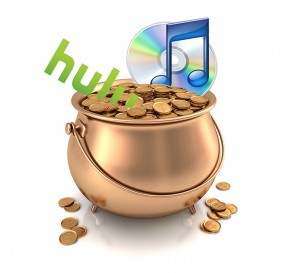
Traditional commerce is dead. As a quick reminder, the model went a little something like this:
Step 1) Make a good product or service
Step 2) Offer said product/service in exchange for money
Sprinkle in some marketing, and you’ve got yourself a business.
Those were the days.
Fast forward to the era of Google. Today you can get music, videos, software, documents, news, education, maps, or even online sports betting, for free. Pretty much, if it can be digitized, it’s available, abundant, and involves no monetary exchange. Some businesses have thrived using the new model, while other industries have fluttered during the same time span. Just ask the newspaper or the music industries.
This new model has delivered power directly into the hands of the consumer. Before, we were often forced to purchase something knowing nothing more than the information portrayed during a 30-second commercial. Now, if we’re not able to watch a bootlegged copy of “Land of the Lost” online prior to its DVD release, there’s a good chance we’ll bypass watching it altogether (I’ve seen it – not watching it is easily your best option). By garnering enough traffic to your website, advertising revenue can make your business an extremely profitable venture. In other words, companies are footing the bill for our use of these free services. Company X can try and sell you a service, but if Company Y is giving it away for free, Company X will cease to exist. Asking the recipient of a service to actually pay for its use might be the equivalent of business suicide. There are of course exceptions to every rule…
iTunes, Apple’s digital media player which needs no introduction, has had great success in selling the public a variety of audio and video entertainment. The same entertainment which is very easily found for free elsewhere (note: my blog is not read by enough people for me to actually state “I don’t condone the use of illegal downloads”). Their success has been so monumental that there’s been nearly one song downloaded for every person living on earth.
But how were they able to accomplish such a feat?
iTunes isn’t even the only place to buy .mp3 online; add in the fact that they’re competing with illegal downloads and you begin to start scratching your head. Their success has hinged on a couple of different factors. First, Apple reinvented the way that we consume music with their creation of the iPod. Soon, anyone between the ages of 15-35 had the highly distinguishable white ear buds inserted into each side of their head. Of course, the default .mp3 player platform for the iPod was iTunes. Instantly millions were exposed to Apple’s digital media player. Second, Apple was smart enough to realize that people most often listen to certain songs, not entire albums. Too many artists were getting away with making a really catchy radio single, and then adding in another 40 minutes of garbage, and asking people to pay $14 for basically one song. iTunes made it simple to filter out the garbage. Other factors include, the ability to burn the .mp3 to a cd or upload to a .mp3 player, iTunes simple and intuitive layout, the psychology of selling a song for less than $1, and some highly publicized lawsuits, but the first two are the most influential.
So why the history lesson on iTunes?
One of my favorite online media providers, Hulu, lets me watch The Daily Show, The Office, It’s Always Sunny in Philadelphia, etc. in a high quality format – for free. That may soon change. Recently, there has been speculation that Hulu will alter it’s business model to make it a subscription service. The scary part is, I think it will actually work. Why? Well one major advantage Hulu has over even iTunes is that it’s owned by NBC, Fox, and ABC, meaning it holds all of the rights to their content. They have complete control over who (legally) plays their media, which will loosely translate to no one. Hulu, much like iTunes, has successfully created an immense user base prior to trying to sell you anything. Now that growth is starting to taper off a bit, it’s time to pull the delicious free rug from below. Again, much like iTunes, I think Hulu’s future success will hinge on their ability to develop a pricing model simple enough where people feel like they’re receiving fair value, and not paying for what they won’t use.
I much prefer the current $0, but I also don’t work for NBC Corp.
Hulu, I should have know you were too good to be true.
